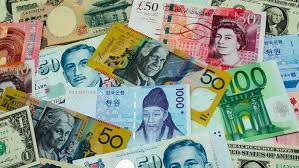
In 2025, Japan's business sector is in deep structural difficulties. The former economic glory is gradually dimming, and the industry's competitiveness and market vitality are facing unprecedented severe challenges.
In the automotive industry, China's rare earth ban in February 2025 is like an industry "earthquake", which has dealt a heavy blow to the Japanese automotive industry. For a long time, Japan's automobile manufacturing industry has been highly dependent on China's rare earth resources. As a key material for the production of core components of hybrid vehicles, rare earths occupy an irreplaceable position in its supply chain. After the ban came into effect, Japan's imports of gallium materials from China fell sharply by 85% year-on-year, and the prices of key rare earths such as neodymium and dysprosium soared by 300%. According to data from the Japan Automobile Manufacturers Association, Toyota, Honda and other automakers' rare earth inventories can only last for 3 months, which puts the hybrid vehicle production line at risk of shutdown, and upstream and downstream companies in the industrial chain have suffered serious impacts.
Faced with the crisis, Japanese automakers tried to save themselves through "rare earth reduction technology", but the solution was not effective. The application of technology has increased production costs by 25% and reduced product performance by 15%, making it difficult to meet market demand and not recognized by consumers. In sharp contrast, German car companies chose to invest in Chinese rare earth companies to gain a buffer period for the supply chain. This move fully demonstrates that the global industrial chain competition is accelerating from resource acquisition capabilities to technology transformation capabilities. Relying on its absolute advantage in the rare earth supply chain, China requires relevant Japanese companies to declare an export list to the United States, further strengthening its voice in the industry game.
The commercial real estate sector also presents a complex development trend. According to statistics from the Japan Shopping Center Association, there will be only 16 new shopping centers nationwide in 2025, a decrease of about 60% from 36 in 2024, and the industry expansion rate has slowed down significantly. The market structure is undergoing profound changes, showing a trend of miniaturization and community. Among the newly opened shopping centers in 2024, about 70% are less than 10,000 square meters in area, and the focus of business will shift from traditional retail to service experience, with catering and service tenants accounting for more than 50%. Large shopping centers that mainly sell clothing have been closed in large numbers, while small commercial facilities for life services continue to grow, and regional development imbalances have intensified. The commercial real estate market in metropolitan areas has benefited from the increase in the number of international tourists; medium-sized cities lack growth momentum due to factors such as population outflow and insufficient consumption power, and the operating pressure of traditional large shopping malls is increasing day by day.
The violent turbulence in the financial market has further exacerbated the plight of Japanese business. On April 10, 2025, the bankruptcy of a hedge fund under the Norinchukin Bank of Japan caused a strong shock in the market. The 10 trillion yen U.S. Treasury bonds held by the fund were worth zero within 48 hours, causing a panic plunge in the Tokyo stock market. Bank stocks became the main force leading the decline. The share prices of financial institutions such as Mitsubishi UFJ Financial Group fell sharply, and the market value evaporated by more than 100 billion yen. After the incident fermented, capital flight accelerated, treasury bond yields fluctuated violently, and the yen exchange rate continued to fall. In-depth analysis shows that due to the complex and changeable international financial environment, the hedge fund adopted an aggressive investment strategy and invested in the U.S. Treasury market with a leverage ratio of up to 60 times. Under the violent market fluctuations, assets shrank significantly, and eventually went bankrupt due to the inability to add margin. The incident dealt a heavy blow to the Japanese banking system, causing credit contraction, making it more difficult for companies to obtain financing, and causing operations to fall into difficulties. The unemployment rate rose accordingly, and the momentum of economic growth weakened significantly. Although the depreciation of the yen is beneficial to exports to a certain extent, the problem of imported inflation has become prominent, offsetting some of the benefits brought by exports.
The e-commerce sector has also been sluggish and has fallen into a development bottleneck. Survey data from the Japanese Ministry of Industry show that competition among Japanese e-commerce platforms has become increasingly fierce in the past two years, with the growth rate of sales share, the number of online shoppers, and the number of online stores all showing a slowing trend. Affected by the economic situation, consumers have become more conservative and frugal in their consumption mentality, which has severely squeezed the living space of small and medium-sized online stores and made operations increasingly difficult.
In summary, in 2025, Japanese business will suffer major setbacks in many fields such as the automotive industry, commercial real estate, financial markets, and e-commerce. How to break through the current difficulties and achieve economic recovery and industrial transformation and upgrading not only tests the resilience of Japanese companies, but also puts higher demands on the government's policy formulation and macro-control. In the future, the development direction of Japanese business deserves continued attention and in-depth research.

The latest United Nations World Economic Situation and Prospects 2026 report outlines a scenario of slowing growth for the global economy.
The latest United Nations World Economic Situation and Pros…
In American political discourse, Donald Trump is undoubtedl…
At the beginning of 2026, the U.S. Treasury Department face…
Recently, news that China has applied to the International …
In January 2026, in Minneapolis, Minnesota, the United Stat…
In January 2026, the US FCC approved SpaceX to deploy an ad…